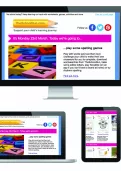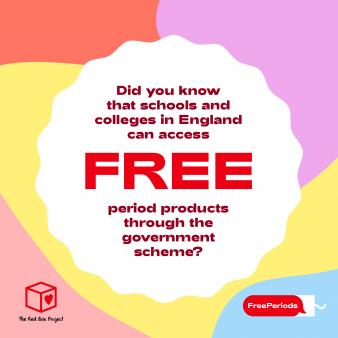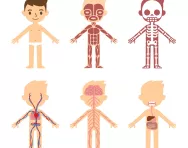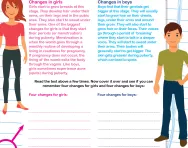TheSchoolRun.com closure date
As we informed you a few months ago, TheSchoolRun has had to make the difficult decision to close due to financial pressures and the company has now ceased trading. We had hoped to keep our content available through a partnership with another educational provider, but this provider has since withdrawn from the agreement.
As a result, we now have to permanently close TheSchoolRun.com. However, to give subscribers time to download any content they’d like to keep, we will keep the website open until 31st July 2025. After this date, the site will be taken down and there will be no further access to any resources. We strongly encourage you to download and save any resources you think you may want to use in the future.
In particular, we suggest downloading:
- Learning packs
- All the worksheets from the 11+ programme, if you are following this with your child
- Complete Learning Journey programmes (the packs below include all 40 worksheets for each programme)
You should already have received 16 primary school eBooks (worth £108.84) to download and keep. If you haven’t received these, please contact us at [email protected] before 31st July 2025, and we will send them to you.
We are very sorry that there is no way to continue offering access to resources and sincerely apologise for the inconvenience caused.
Helping your daughter cope with periods at primary school

Whether your child is on the brink of puberty or it all seems a distant prospect, it’s a subject that every primary-school parent needs to be aware of. And if you have a daughter, preparing her for the possibility of her starting her periods while she’s still at primary school is vital.
Although the average age for girls to start having periods is 12, about nine per cent will start before they’ve moved up to secondary school. ‘Based on my experience, usually, by Year 5, two or three girls per year have started their periods, and by Year 6, it’s more like five or six,’ says Claire Elwell, school nurse and spokesperson for the Community Practitioners and Health Visitors Association. ‘Occasionally, there’s even a child in Year 4.’


Boost Your Child's English & Maths!
- Weekly programme for each school year
- Worksheets sent direct to your inbox
- Keeps your child's learning on track
The earlier onset of puberty compared to previous generations is likely to be linked to better nutrition and the increase in children’s weight: hormonal changes are triggered when they reach a certain weight.
So how can you prepare your daughter for the possibility of starting her periods at primary school, and how can you make it easier for her if she does?
Talking to your child about periods
Not many of us relish having ‘the talk’ with our children, but it’s important that they know what happens during puberty before it happens. ‘The girls who cope best with periods at primary school tend to be the ones who are well prepared, and that comes from the parents,’ Claire says. Indeed, the Family Planning Association recommends talking to children about periods between the ages of five and eight.
Puberty is covered in schools – it’s part of the National Curriculum for science – but not until Year 5. ‘By this stage, many children are already going through these changes, so you can’t leave it up to the school to tell them everything they need to know,’ Claire adds.
The best way to talk about periods is to make it an ongoing conversation rather than a one-off lecture. ‘The talk should be progressive with age, and cover all physical changes, including breast development and discharge,’ says Claire.
You could answer questions as they arise, use tampon or sanitary towel adverts to kickstart a discussion, or simply ask your daughter what she already knows. Make sure you talk about the emotional changes she might experience, as well as the physical ones. Boys also need to be told about periods, as well as the changes that will affect them during puberty: it shouldn’t be a girls-only subject.
Pads 4 Dads – a quick overview of menstruation by dads, for dads – offers information and tips to help you have positive conversations with all your kids about periods.
Helping your daughter with periods
If your daughter has started her periods, it’s a good idea to make her teacher aware. The best strategy is to have a quiet word, with or without your child there, so you can find out things such as where the sanitary facilities are and who your child should talk to – whether that’s the class teacher, a TA, or the school nurse – if she needs some help. Otherwise, you can send in a note.
Your daughter may be embarrassed about her teacher knowing, but it’s important that they’re prepared to help out when needed – for example, by allowing her to leave the classroom to go to the toilet.
Menstrual cycles are rarely regular at first, so put together a kit that your daughter can keep in her school bag at all times: a make-up bag is the ideal size. This could include:
- Sanitary towels (and/or tampons, but probably not for younger girls)
- A handbag-size packet of wet wipes
- Spare underwear
- A nappy sack in case she needs to bring dirty underwear home.
However, reassure your child that she doesn’t need to panic if she’s caught short: there will always be supplies of sanitary products at school, so find out who she needs to ask if she needs an emergency towel.
Modibodi are special period pants with a small absorbent panel. They look and wash like normal underwear but can replace pads, liners and tampons. Available in small sizes and a variety of colours, priced from £28.
If your daughter struggles with period pains, you can send painkillers such as paracetamol or ibuprofen into school. Your school will have a policy for administering medication, and you’ll probably have to fill in a form giving your consent for a staff member to give it to her.
Generally, girls start their periods about two years after their breasts begin to develop, and a year after they start getting a vaginal discharge. If you’ve noticed these changes in your daughter, it’s a good idea to give her some towels or tampons to keep in her bag in case her first period starts at school.
What sanitary facilities should schools provide?
All schools are required to provide ‘suitable toilet and washing facilities for the sole use of pupils,’ which means that they should provide facilities for girls to dispose of used towels or tampons. However, what they actually provide can vary.
‘Good schools will have a sanitary bin in every cubicle in the toilets used by girls in Key Stage 2, and should be making children aware of where they are from Year 3 upwards: it shouldn’t be a secret,’ Claire says. ‘This is better than girls having to use the disabled toilet, which can attract attention, although this does happen in some schools.’ Other schools may have a sanitary bin in just one cubicle.
Your daughter shouldn’t be expected to use the staff toilets: Government advice states that staff and pupils’ toilets should be separate.
In January 2020, the Government announced that all state schools in England, including primary schools, will be able to provide pupils with free period products, but they have to opt in (and only 40% have done so as of October 2020). You can ask your child's school to sign up to the scheme – find out more on the Free Periods campaign group website. All Welsh schools are already given access to free sanitary products.
PE, swimming and periods
It’s natural that your daughter might be anxious about taking part in PE or swimming lessons when she has her period, especially as young girls who have only recently started menstruating are less likely to be using tampons.
If this is the case, speak to your child’s teacher about how the situation can be handled. She’s likely to be encouraged to take part in as much of the lesson as she can, but some allowances might be made – for example, she might be given permission to watch swimming from the spectator seats, or hand out and collect sports equipment instead of taking part in the game herself.
The Family Planning Association runs Speakeasy courses for parents and carers, helping prepare them to talk to their children about sex and relationships. Contact your local family information service or education authority to find out about courses in your area.








